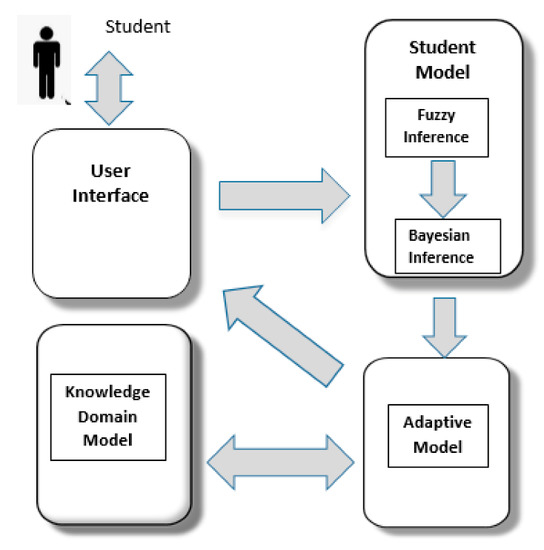The Single Strategy To Use For Bioinformatics Tutor
The Single Strategy To Use For Bioinformatics Tutor
Blog Article
The Best Guide To Bioinformatics Tutor
Table of ContentsWhat Does Bioinformatics Tutor Mean?The Ultimate Guide To Bioinformatics Tutor6 Easy Facts About Bioinformatics Tutor DescribedThe 8-Minute Rule for Bioinformatics TutorBioinformatics Tutor Things To Know Before You Get This
Initial project development is fairly lengthy, as it entails mindful preparation of the topic, structuring of deliverables, and consideration of the skills and experience degrees of individuals. Nevertheless, when a project has been clearly defined and executed, it has the possible to be reused in future sessions with only small modifications to reflect updates in the area or fit distinctions in individual backgrounds. This makes project-based discovering a lasting and reliable teaching strategy in the lengthy run, particularly in rapidly evolving self-controls like bioinformatics.To make sure continuity and reproducibility of knowing, giving common lab notebooks-- either digital or physical-- is important. These notebooks serve as collective logs where students can videotape their progress, code, methodologies, and results throughout the course. Not only do they strengthen knowing by urging paperwork and reflection, but they also work as post-course recommendation products that participants can seek advice from in future research study or academic jobs.
Mentors play an essential function in the success of project-based programs. Advisors additionally act as duty designs and motivate students to continue pursuing jobs in computational biology and associated fields.
The Bioinformatics Tutor Statements
An additional trick facet of the discovering process is providing individuals the chance to present their work to others, especially to an audience past their prompt project group. Final presentations or mini-conferences allow trainees to express their findings, get positive comments, and gain self-confidence in interacting scientific content. This discussion component is usually a favorite amongst trainees, as it confirms their initiatives and highlights the real-world significance of their job.
The effectiveness of this technique was confirmed by the overwhelmingly positive feedback obtained after the initial course was supplied. The success prompted repeat offerings of the exact same course format in 2015 and 2016. Each model of the program was fine-tuned based upon individual feedback and advancing ideal methods in rearing. These adjustments guaranteed that the core goals-- hands-on knowing, cooperation, and used analytic-- continued to be intact while increasing the deepness and breadth of topics covered.
A noteworthy visualization that captured participant view was a word cloud produced from actions to the 2014 end-of-course study. Individuals were asked, "What was the most effective component of the training course?" and their responses were assembled into a visual word cloud. In this representation, the size of each word indicates just how often it was pointed out, with words like "hands-on," "partnership," "real-life problems," "assistance," and "interactive" appearing most plainly. This visual feedback enhanced the program's emphasis on experiential learning and coach support.
The contributions of individuals such as Rustici, G., Orchard, S., Cowley, A., and Twells, R., together with other members of the EBI user-training-working group, contributed in fine-tuning the training course framework and web content. Their insights aided shape a adaptable and comprehensive version that could be adapted to various institutional and regional contexts.
Little Known Facts About Bioinformatics Tutor.

Jones, Rasmussen, and Moffitt (1997) likewise promoted for interdisciplinary discovering with collective project work, noting its capacity to replicate expert atmospheres and prepare trainees for future academic or sector roles. In a detailed evaluation, Thomas (2000) evaluated multiple researches on PBL and ended that trainees not only execute well academically however also develop a much deeper understanding of the subject and enhanced teamwork abilities.
In the context of bioinformatics education and learning, cutting-edge methods like classroom games and simulation-based training have likewise been employed. As an example, Schneider and Jimenez (2013) presented the use of interactive video games to teach biological data assimilation, making it possible for students to grasp complex concepts via experiential knowing. This type of gamification matches the hands-on knowing stressed in project-based courses by introducing a component of enjoyable and competition, which can even more improve involvement.
Returning to the program gone over below, the lessons learned from the implementation of project-based discovering in a bioinformatics establishing have broader implications for other STEM fields. The methodology stresses not simply technical proficiency, however also communication, collaboration, and vital reasoning-- abilities that are significantly valued in both academia and sector.
The 6-Second Trick For Bioinformatics Tutor
The scalability of the training course layout likewise makes it a viable model for various other establishments. With proper customization based on local requirements, offered sources, and individual accounts, the framework can be reproduced or adapted see this page for usage special info in other scientific domains. Additionally, the inclusion of structured mentorship and analysis methods aids guarantee constant high quality and measurable understanding end results.

To conclude, project-based learning in bioinformatics offers an effective strategy to mentor complicated, interdisciplinary content in a way that is both obtainable and intellectually promoting. By stressing cooperation, sensible application, and essential questions, such efforts not only boost private knowing but additionally add to the cultivation of a brand-new generation of knowledgeable and cutting-edge researchers.
The 10-Minute Rule for Bioinformatics Tutor

One more trick facet of the understanding procedure is offering individuals the chance to present their job to others, particularly to an audience past their instant project team.In the broader instructional literature, project-based discovering (PBL) has been thoroughly examined and validated as an efficient method for promoting deep understanding, critical thinking, and transferable abilities. Adderley et al. (1975) emphasized the worth of project approaches in higher education, keeping in mind that they promote active understanding and autonomy. Schneider and Jimenez (2013) presented the usage of interactive games to educate biological data assimilation, enabling trainees to realize complex principles via experiential knowing.
Report this page